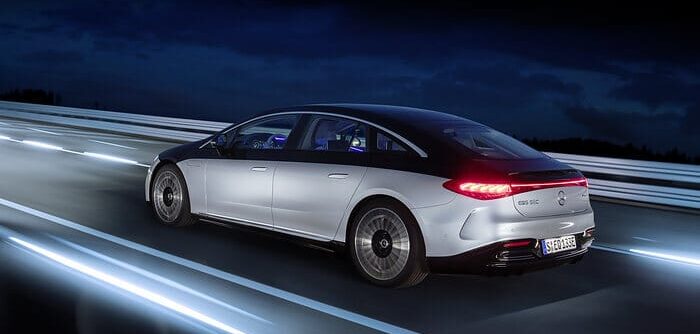Mercedes-Benz has announced that it is to shift to an all-electric model line-up by 2030. By 2022, the German OEM expects to have battery-electric vehicles (BEV) in all segments, and from 2025 onward its new architectures will be electric-only, with all vehicles in its portfolio available in electric variants.
“The EV shift is picking up speed, especially in the luxury segment where Mercedes-Benz belongs. The tipping point is getting closer and we will be ready as markets switch to electric-only by the end of this decade,” commented Ola Källenius, CEO of Daimler and Mercedes-Benz. “This step marks a profound reallocation of capital. By managing this faster transformation while safeguarding our profitability targets, we will ensure the enduring success of Mercedes-Benz. Thanks to our highly qualified and motivated workforce, I am convinced that we will be successful in this exciting new era.”
The manufacturer has drawn up a strategy to facilitate the switch, including a rapid acceleration of its R&D projects. Between 2022 and 2030, Mercedes estimates it will invest over €40bn (US$47bn) in battery-electric vehicles and predicts that the tipping point for EV adoption will come sooner.
The strategy will see the adoption of three electric-only architectures:
- EA will accommodate all medium- to large-size passenger cars to establish a scalable, modular system to support the company’s future EV portfolio.
- EA will be a dedicated performance electric vehicle platform addressing technology- and performance-oriented Mercedes-AMG customers.
- EA will encompass purpose-made electric vans and light commercial vehicles.
To achieve its ambitious targets, Mercedes-Benz forecasts a required battery manufacturing capacity of more than 200GWh and has set plans in motion to build up to eight gigafactories for the production of battery cells. These plants will be in addition to a previously announced network of nine battery plants. The company states that its next-generation batteries will feature a high degree of standardization, making them suitable for use in around 90% of its cars and vans.
Furthermore, Mercedes plans to work with several partners to develop and produce future cells and modules, including companies such as Sila Nanotechnologies, which aims to increase the energy density of batteries by using silicon-carbon composite in the anodes.
“Our main duty in this transformation is to convince customers to make the switch with compelling products. For Mercedes-Benz, the trailblazing EQS flagship is only the beginning of this new era,” concluded Källenius.


